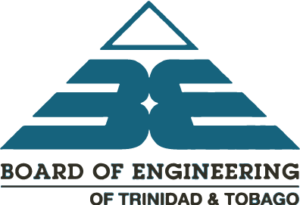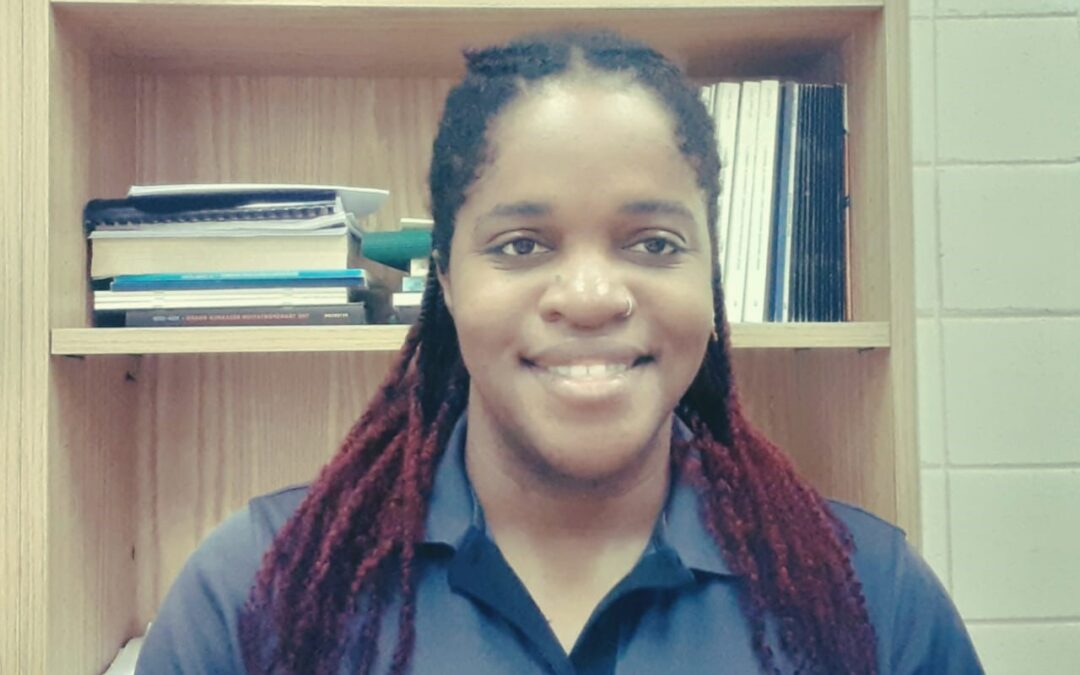Leah Wright, BSc (Civ.Eng.)
A Chat with Leah Wright, a Young Caribbean Research Engineer
Leah Wright is a young Civil Engineer whose interest was piqued by an area of civil engineering which is very much people centered, and that’s Transportation Engineering. That interest led to her pursuit as a PhD candidate in the field of Transportation and the opportunity to present a research paper on her area of research to an international audience at APETT’s Technical Conference, ATC2024, May, 14-15, 2024, HYATT Regency Hotel, Port of Spain, Trinidad. Her scope of study is the Mode Choice Modelling in Small Island Development States (SIDS) with an ultimate objective of modernizing and improving public transportation systems in the Caribbean with more efficient commutes through the reduction of traffic congestion. Her areas of research have been the study of paratransit modes in Caribbean public transportation systems and climate change in transportation. Ms. Wright has also presented at the International Association for Travel Behavior Research (IATBR) and is a reviewer for the Transportation Research Board and a Published writer. The title of Ms. Wright’s presentation at APETT’s Technical Conference was “Understanding the Travel Behaviour of UWI Employees”. Leah’s distinction in the Engineering Space in Trinidad and Tobago came to the attention of the Board of Engineering of Trinidad and Tobago (BOETT) as a result of her insightful Conference presentation.
Q1. Can you tell us a bit about your background and what inspired you to pursue the specific research topic you presented at APETT’s ATC2024 technical conference?
I came to Trinidad from Barbados to pursue my BSc in Civil Engineering, and in my final year, I was introduced to Transportation engineering. This field of engineering really piqued my interest, because it was a type of civil engineering where you had to consider people, specifically their behaviours, directly in the engineering design. So, I eventually decided that I wanted to do more research into transportation, here in the Caribbean.
Q2. Could you give us an overview of the key points of your presentation?
My presentation specifically looked at the travel patterns of the UWI, St. Augustine employees. This data set was used in the development of the mode choice model for my PhD. thesis. Some of the points I was able to gather from looking at the data were that:
- Income status, may not be a true indicator of vehicle ownership. Typically, it is assumed that those with a lower income don’t have access to or own their own vehicle, but the results from the study showed that this isn’t necessarily true. In some cases, lower income groups had multiple cars per household (sometimes more cars than drivers within the household).
- The public transportation system is severely flawed and may actually contribute to persons choosing to purchase a car. I found that people who use public transportation make multiple stops along their travel to and from work. The further away you live, the more stops you make. In almost every case, these stops were to switch transportation modes, for example, from a taxi to a maxi, or from one taxi to another.
Some people made as much as 5 stops in the morning to work, and 5 stops in the evening from work. All of which were just to switch modes. As much as people complain about traffic, it is evident, that most people would rather sit in traffic in their personal vehicles, instead of sitting in a public transportation mode where you have to change modes 5 different times before you can get to work or home. I don’t see building more roads solving the traffic issue, when the state of the public transportation system makes the private car so attractive.
Q3. What was the most challenging aspect of your research and how did you overcome it?
I think the most challenging aspect would have been the data collection. It took a very long time, and required multiple iterations of the questionnaire before I was able to get something that I could use. This type of research is not commonly done in Trinidad, or the Caribbean, and most international researchers only briefly discuss the method they used, but don’t go into great detail on the type of questions used. Again, I am dealing with the public, who themselves don’t really understand what I am doing and why I needed specific types of information. So, I had to figure out what do I ask, in order to get specific answers, and how do I ask that question, so that the average person could understand. Because again, the public transportation system in Trinidad, makes it tricky to ask straight forward questions. For example, if you tell me that you use the maxi taxi daily to get to work, and I ask you, ok, what about the bus, how long will it take in the bus? You might tell me, well I wouldn’t take the bus because it doesn’t make sense, I would have to take 2 taxis to get to someplace where I can get a bus. But I need that information, even if it isn’t “logical” to you, and I need to know that you take 2 different taxis to get to the bus, and how long you take in each taxi and the bus, how long you think you would have to wait on each mode, and if you would have to leave home at a different time to reach to work on time, etc. It was extremely difficult to try to get all that information from the respondents but to explain it in text. In the end, I ended up having to use an interview style, because I couldn’t get pass that hurdle any other way, in a reasonable time frame.
Q4. How did you decide on the methods and techniques you used in your research?
The objective of my research was to develop a mode choice model that considered multiple types of uncertainty. Thus, I wanted to look at a method that allowed me to apply randomness and fuzziness simultaneously. Ideally, this would allow us here in the Caribbean to use a more sophisticated model, within our common constraints, such as smaller sample sizes, missing data etc., because we know data collection is a big issue here in the Caribbean. So, if this model allows us to circumvent that major issue, while still producing accurate and interpretable results, it could make collecting and analyzing traffic, and transportation problems much easier for us to address. So that was my reasoning for using the Possibility Calculus technique, which was actually developed by a Trinidadian, Dr Sidney Thomas. He assisted me in developing the final model.
Q5. What were some unexpected findings or results that emerged during your study?
I think that a big one was that variables such as travel cost weren’t always significant to travellers. Usually we think that travel time and travel cost are key variables in an individual’s choice, but interestingly, comfort, and safety were actually more dominant variables for private car and PTSC users
Another thing was how much people indicated that they would prefer to use public transportation than drive. One of the biggest hinderance for them was the unreliability of the system.
Also, so many people have started using rideshare apps, that we had to start clarifying what we meant by taxi. Originally, that was not an option I had considered in the choice set, but these rideshare apps have gained a lot of popularity, especially after COVID.
Q6. What are the next steps for your research following the conference presentation?
As my data focused only on employees of UWI, I would also like to collect data on the travel patterns and behaviours of UWI students, to get a more comprehensive view of the situation and propose some solutions to the traffic issues that UWI is facing. Hopefully, with success, the framework could be applied to the country to assist in improving the public transportation system and also alleviating some of the traffic issues we see daily.
Q7. Are there any new areas or questions you are eager to explore as a result of your findings?
I would like to start looking at climate change and disaster management issues, the impact of transportation and finding local solutions. I think that this is an area which we haven’t fully started to explore here in the Caribbean. The focus on climate change and disaster management have usually been on water or coastal issues, understandably. But seeing how transportation is a major contributor to greenhouse gases, I think this is something that we need to also focus on. Furthermore, the COVID-19 pandemic highlighted how dependent we are on, not just road transportation, but port/maritime transportation. I think that finding frameworks for minimizing the negative side effects of disasters on both these different aspects of transportation would be beneficial for us as a region to quickly bounce back from these inevitable natural or other disasters.
Q8. What was the most rewarding part of your presenting at the conference?
It was a great opportunity to showcase some of the research I am currently doing and get feedback from an audience of seasoned professionals, who were able to plant new ideas for future research and give useful criticism on my work and areas to investigate further. Networking and seeing the work that is currently being done by different engineers was also nice experience. Hoping for some collaborative work in the future
Q9. What advice would you give to other young engineers who are interested in pursuing research?
Have a plan, and have a timeline. Sometimes what happens is that we can get distracted by adjacent research areas when starting, so having a plan and an area to focus on will help in solidify the research questions and objectives of your research. Also, have a timeline. You have to treat your research just like a project with a deadline and interim goals to meet, because that is exactly what it is. Time goes by really fast and then you realize you haven’t made any significant strides in your research. You need to give yourself a timeline to help keep your focus. Finally, learn to pivot. Sometimes things that are outside of your control stop you from completing the original plan. Learn to pivot. Keep the goal but make a new plan.
Q10. Finally, what are your long-term career goals, and how does your current research fit into these aspirations? I would like to assist in improving the transportation systems in the Caribbean, particularly looking at the public transportation systems. I feel as though the system is generally ignored, and the typical solution to any problem, is to build more roads. But revamping the public transportation systems could be the feasible solution to a lot of the transportation issues we face as a region, and it would also assist in minimizing our carbon footprints as a region.


